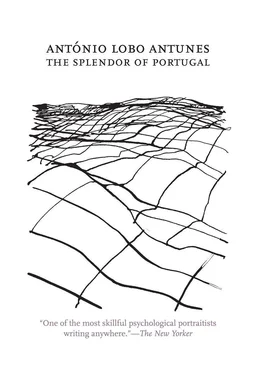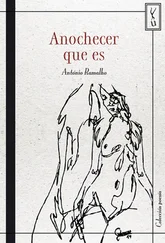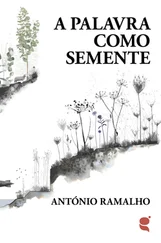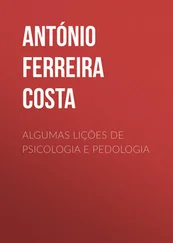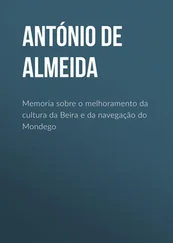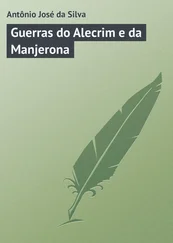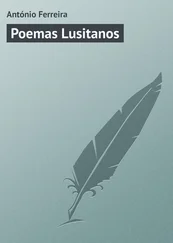António Antunes - The Splendor of Portugal
Здесь есть возможность читать онлайн «António Antunes - The Splendor of Portugal» весь текст электронной книги совершенно бесплатно (целиком полную версию без сокращений). В некоторых случаях можно слушать аудио, скачать через торрент в формате fb2 и присутствует краткое содержание. Год выпуска: 2011, Издательство: Dalkey Archive Press, Жанр: Современная проза, на английском языке. Описание произведения, (предисловие) а так же отзывы посетителей доступны на портале библиотеки ЛибКат.
- Название:The Splendor of Portugal
- Автор:
- Издательство:Dalkey Archive Press
- Жанр:
- Год:2011
- ISBN:нет данных
- Рейтинг книги:3 / 5. Голосов: 1
-
Избранное:Добавить в избранное
- Отзывы:
-
Ваша оценка:
- 60
- 1
- 2
- 3
- 4
- 5
The Splendor of Portugal: краткое содержание, описание и аннотация
Предлагаем к чтению аннотацию, описание, краткое содержание или предисловие (зависит от того, что написал сам автор книги «The Splendor of Portugal»). Если вы не нашли необходимую информацию о книге — напишите в комментариях, мы постараемся отыскать её.
The Splendor of Portugal — читать онлайн бесплатно полную книгу (весь текст) целиком
Ниже представлен текст книги, разбитый по страницам. Система сохранения места последней прочитанной страницы, позволяет с удобством читать онлайн бесплатно книгу «The Splendor of Portugal», без необходимости каждый раз заново искать на чём Вы остановились. Поставьте закладку, и сможете в любой момент перейти на страницу, на которой закончили чтение.
Интервал:
Закладка:
António Lobo Antunes
The Splendor of Portugal
Heroes of the sea, noble people,
Courageous, immortal nation,
Raise today once more
The splendor of Portugal!
From amidst the mists of memory,
Oh Fatherland, hear the voice
Of your illustrious forefathers
Which shall surely guide you to victory.
To arms, to arms,
On land, on sea!
To arms, to arms,
Fight for the Fatherland!
March, march against the cannons.
— PORTUGUESE NATIONAL ANTHEM24 December 1995
When I said that I had invited my siblings to spend Christmas Eve with us
(we were eating lunch in the kitchen and you could see the cranes and the boats back behind the last rooftops of Ajuda)
Lena filled my plate with smoke, disappeared in the smoke, and as she disappeared her voice tarnished the glass of the window before it too vanished
“You haven’t seen your siblings in fifteen years”
(as her voice enveloped the window frame it took with it the hills of Almada, the bridge, the statue of Christ alone beating its helpless wings above the mist)
until the smoke dissipated, Lena reappeared little by little with her fingers outstretched toward the breadbasket
“You haven’t seen your siblings in fifteen years”
so that all of a sudden I was aware of the time that had passed since we arrived here from Africa, of the letters from my mother, first from the plantation and later from Marimba, four little huts on a hillside of mango trees
(I remember the regional administrator’s house, the store, the ruins of the barracks shipwrecked and sinking in the tall grass)
the envelopes that I kept in a drawer without showing anyone, without opening them, without reading them, dozens and dozens of dirty envelopes, covered with stamps and seals, telling me about things I didn’t want to hear, the plantation, Angola, her life, the mailman delivered them to me on the landing of the stairway and an expanse of sunflowers murmuring in the fields outside, sunflowers, cotton, rice, tobacco, I don’t care about Angola, a bunch of blacks in the barracks, in the government palace, and in the huts on the island laying out in the sun as if they were us, I closed the door with the letter held between two fingers like someone holding an animal by its tail
letters just like putrid dead animals
Luanda Bay, ignored by its own palm trees, amounted to nothing more than a tiny room in need of a paint job, outfitted with a coatrack and a chest of drawers, Lena filling my plate with smoke and blotting out the world
“You put them out on the street and now, fifteen years later, you want your siblings back”
sitting in front of me waving her hand to waft away the smoke
“If I were you I wouldn’t wait up for visitors, Carlos”
she’s gotten fat, dyes her hair, complains about some heart condition or another, gets examined at the doctor’s office and takes pills, Lena interfering with me and my family, the daughter of a Cuca-beer plant worker living with a bunch of cousins a hundred meters from the Marçal neighborhood, out of shame I never told any of my schoolmates that I was dating her, if it happened that she came up to me, laughing after class
(skinny, hair braided, before she started to go to the doctor or take pills for her heart condition)
I would whisper frantically
“Get lost”
only later, on the bus, after verifying that not even the Jingas were watching us, would I signal to her with my index finger, a house three streetlights down with an awning covered with mosquitoes, mossy vines, her father in boxer shorts reading the paper, mulatto neighbors in clapboard shacks, Lena with her braids undone tugging on my lapel in the café, the city at a standstill, my schoolmates intrigued, beers suspended half-swig, me hoping that they couldn’t hear me
“Get lost”
pretending to be as impolite as them, as scandalized as those who mocked your house and your mulatto neighbors, knocked your notebooks to the ground, pulled up your skirt and laughed, yelled at you from afar
“Slum-dweller”
you in tears gathering up your notebooks and your father who didn’t have a car like us, he rode an ancient moped, threatening us with a rolled-up newspaper, harmless, tiny, unstable on his little pockmarked legs
“My daughter’s better than you bastards”
Lena tugging on my lapel in the café
“I need to talk to you be patient”
tomorrow everyone in Luanda will know about us, the manager throws me out with an irritated gesture
“Get out”
my schoolmates turn their backs on me and plug their noses
“You smell like Sambizanga you stink Carlos”
selfish Lena not caring if they turn their backs on me, at the shore dragging me along the arcade where the birds are perched and waiting for dusk when the trawlers go out to fish, so they can fly around screeching, pecking at splotches of diesel fuel
“Don’t telephone me don’t call me at all”
lights that shone between the cabanas and palm trees of the island, the city streetlights lit, the sign of the hotel orange and blue missing a few letters, people and cars pay no attention to me due to the darkness, my schoolmates called their friends Guess what the big news is, have you heard, brace yourself, don’t faint, guess who Carlos, no, the other one, the jerk from Malanje, is dating, me hating Lena who couldn’t even bear me a child getting up from the table in Ajuda to wash off the tablecloth with a sponge, to put on rubber gloves and wash the plates
“You put them out on the street and now you want your siblings back if I were you I wouldn’t wait up for visitors Carlos”
she didn’t rest until I married her and freed her from Marçal, from her relatives who shivered with malaria in grimy rooms, dressed in black as if they still lived in Minho, tripping over clay pots and little saints with oil lamps at their feet, on Sundays her uncles, sweating beneath their overcoats, cleared five feet of land behind the house in hopes of growing cabbages
you’re going out with the slum-dweller Carlos admit that you’re going out with the slum-dweller she’s not a slum-dweller you’re crazy her family’s apartment is under construction
fat and with her hair dyed, Lena just finished drying the plates, piled them in the cupboard, took off her gloves and headed for the room where the Christmas tree stood, still with no stand, no silvery star, no decorative balls, no snowflakes
“You haven’t seen your siblings in fifteen years”
I was left alone in the kitchen listening to the humming of the refrigerator and looking at the hills of Almada, looking at the plantation from the window of the jeep as we drove away over the potholes of the dirt road that divided the two fields of withered sunflowers until it reached the pavement, the company store where the Bailundos bought cigarettes, dried fish, and warm beer on Sundays appeared around a curve and hid itself among the trees, along with the lime plaster-covered shanties in the field where a setter was barking, withered sunflowers, withered rice, withered cotton, a tractor with no wheels in a ditch, at the spot where the dirt road met the pavement a UNITA patrol car pulled out in front of us and they waved their rifles at us, telling us to pull over, barefoot soldiers with their uniforms in tatters rummaging through our luggage looking for coins or food, anything they could steal, the unbearable damp smell of cassava, filthy fingernails searching between the seats, toothless mouths
“Get out, get out”
my sister to my mother, twisting in fear to escape their reach
“Mother”
“You put them out on the street and now you want your siblings back if I were you I wouldn’t wait up for them tonight Carlos”
Читать дальшеИнтервал:
Закладка:
Похожие книги на «The Splendor of Portugal»
Представляем Вашему вниманию похожие книги на «The Splendor of Portugal» списком для выбора. Мы отобрали схожую по названию и смыслу литературу в надежде предоставить читателям больше вариантов отыскать новые, интересные, ещё непрочитанные произведения.
Обсуждение, отзывы о книге «The Splendor of Portugal» и просто собственные мнения читателей. Оставьте ваши комментарии, напишите, что Вы думаете о произведении, его смысле или главных героях. Укажите что конкретно понравилось, а что нет, и почему Вы так считаете.
